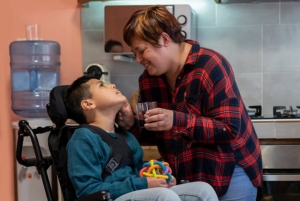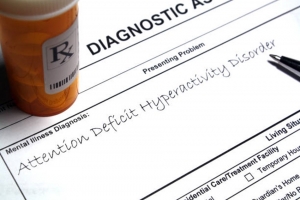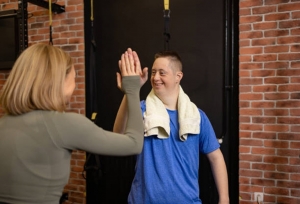According to new research by Support SEND Kids, two in five parents of children with special educational needs and disabilities (SEND) have had to leave their jobs due to insufficient support. The study, titled "Fighting for your SEND child: the hidden cost", surveyed 519 parents, revealing that only 12% saw no change to their working lives. Nearly half (48%) reduced their hours or moved to more flexible roles, while 40% left work entirely.
Key reasons cited for these changes included a lack of help from local authorities, limited school support, and inflexibility from employers. Many parents also struggled to obtain the necessary Education Health and Care Plan (EHCP) for their child, with some leaving work during this fight for adequate provisions.
Families of children with SEND face significant financial burdens, with many resorting to private assessments due to long NHS waiting times. Hidden costs, such as private reports and legal fees for tribunals, further exacerbate these pressures. Parents described the emotional and mental toll of navigating a system that often falls short in providing necessary support.
The report suggests that the solution lies in increased funding and resources for SEND services. Many parents feel they are constantly battling for their children’s rights and argue that more government support is urgently needed to address these challenges.
A new report reveals that children with special educational needs (SEN) are five times more likely to be permanently excluded from school compared to their peers without SEN. The analysis, conducted by the Institute for Public Policy Research (IPPR) and The Difference, highlights a 20% rise in suspensions and exclusions in the 2023/24 academic year, leading to the loss of 32 million school days due to unauthorised absences and exclusions. Children from low-income families, those with SEN, and those facing mental health challenges are among the most affected.
The report also finds that children with severe mental health needs classified as SEN are 17 times more likely to be placed in alternative provision schools for excluded pupils. Since the pandemic, there has been a 56% rise in children moving from state-run to privately-run provision funded by the state, with annual costs per child reaching as high as £111,000 - double the cost of state settings.
IPPR research expressed concerns over the increasing number of vulnerable children missing out on education, calling for urgent reforms to address this "crisis of lost learning." The report estimates that each permanently excluded child incurs a lifetime cost of £170,000, with the most recent excluded cohort alone potentially costing the state £1.6 billion.
In response, the newly formed "Who’s Losing Learning Solutions Council" will gather evidence from experts between September 2024 and March 2025 to develop national policy solutions. The council aims to support mainstream schools in better addressing the needs of all children, particularly those struggling with mental health, and to improve inclusivity and support for SEN students.
Young adults with ADHD are struggling to access treatment as they transition from children's to adult services, due to poor coordination between services, according to new research. A national survey by the University of Exeter revealed significant inconsistencies in the prescribing and management of ADHD medication in primary care, especially when young people move to adult mental health services. This is despite NICE guidelines recommending shared-care agreements between GPs and adult mental health services for ADHD medication.
Over 40% of respondents reported waiting more than two years for an appointment with adult services, leaving GPs to manage their care. However, many GPs expressed concerns about prescribing ADHD medication without adequate support, citing issues with insurance and liability. This situation is particularly challenging for those with private ADHD diagnoses, leaving some patients without access to vital medication that had been effective during their childhood.
The survey also highlighted that certain underserved groups, such as young women and care leavers, face even greater difficulties in accessing treatment, further exacerbating health inequalities. This lack of coordinated care is increasing the disparity in ADHD treatment across the country.
Dr Anna Price from the University of Exeter stressed the need for a more joined-up approach to support GPs in managing ADHD under shared-care agreements. She emphasised the importance of consistent treatment during the transition to adulthood, particularly at a critical life stage when young people are managing key milestones like exams, university, or starting their careers.
New research from disability charity Sense reveals that the health and wellbeing of disabled people in the UK is being severely neglected, with 1.3 million individuals with complex disabilities not getting enough physical activity to maintain their health. The survey, which included over 1,000 adults with complex disabilities, found that 81% are doing less than the NHS-recommended 150 minutes of exercise per week, with more than a third exercising for less than 30 minutes.
Nearly half of those surveyed expressed a desire to be more active but cited barriers such as inaccessible venues, transportation, and a lack of trained staff. Additionally, over a quarter reported not receiving enough information about inclusive sporting opportunities in their local area.
Professor Greg Whyte from Liverpool John Moore’s University criticised the lack of support, describing the situation as “mass disability neglect.” He called for simple changes, like better staff training and improved access, to help disabled people get the exercise they need to reduce the risk of long-term health conditions like heart disease and diabetes.
Sense is aiming to tackle these issues with its Sense Active programme, which aims to support 5,000 people with complex disabilities and train over 1,000 coaches by 2027. The initiative, funded by a £2.2 million grant, seeks to break down barriers and redesign sports to ensure meaningful participation for all.
According to recent research from the Resolution Foundation, one in four disabled children lose access to disability benefits as they transition into adulthood. The report, titled Growing Pressures, examines the increasing number of children under 16 with disabilities and its impact on the benefits system. The study found that the number of children receiving Disability Living Allowance (DLA) in England and Wales has doubled over the past decade, reaching 682,000 in 2023. This rise is largely due to an increase in awards for children with learning difficulties, behavioural disorders, and ADHD.
The report highlights that while the number of children receiving DLA has surged, it doesn't reflect an easing of eligibility criteria. Instead, most children awarded DLA have significant care needs that affect their daily lives. Notably, the middle rate care component has seen the largest increase, with a 116% rise over the past decade, while the highest care rate has doubled.
As children approach adulthood, the transition to working-age disability benefits, such as Personal Independence Payment (PIP), poses challenges. Although four-fifths of initial DLA-to-PIP reassessments result in a PIP award, 13% of young people fail to make a PIP claim, leading to a significant drop in the number of 16- and 17-year-olds receiving disability benefits.
The Resolution Foundation emphasises the need for a smoother transition between child and adult disability benefits. They argue that addressing the underlying causes of rising disability rates, rather than focusing solely on benefit eligibility, is crucial for creating a sustainable solution.












